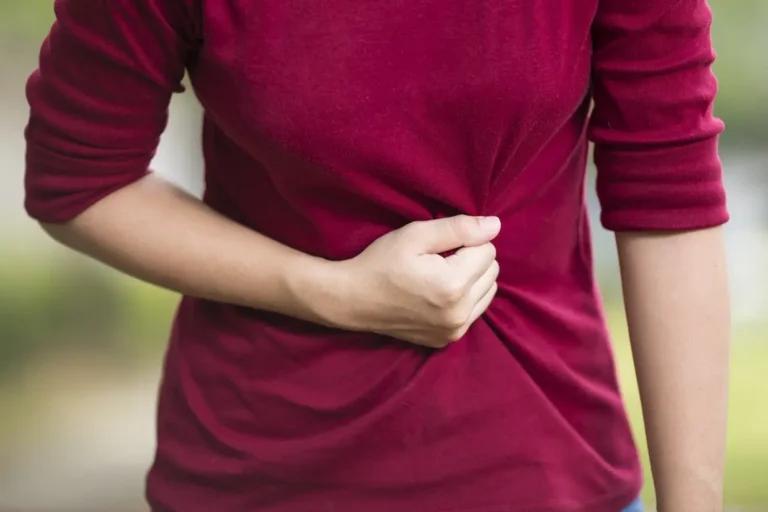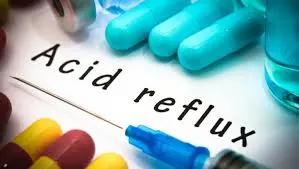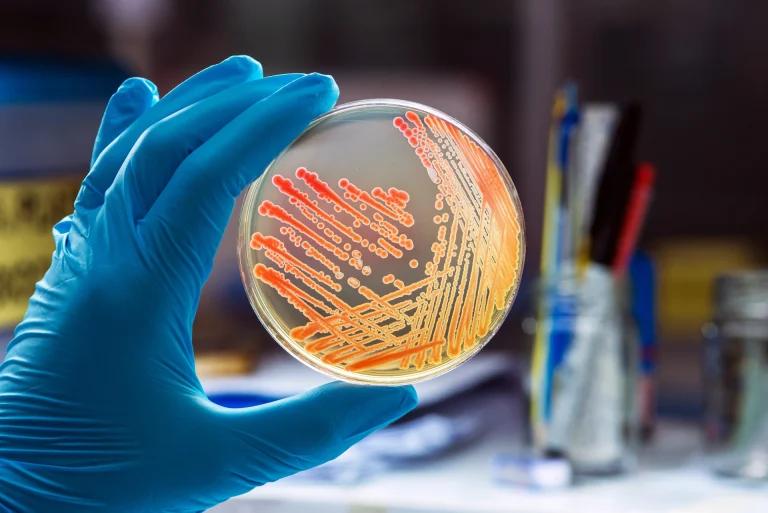
September 15, 2025 (Current Version)
March 28, 2025
You may have heard of gastroenteritis before, but maybe you’re not quite sure what it is. Gastroenteritis is an infection of the stomach and intestines. It’s also sometimes called the “stomach flu,” although not a medical term, but many people know it by this term. In most cases, gastroenteritis goes away on its own after a few days. However, severe cases can be life-threatening, so it’s important to know the symptoms and when to seek medical attention.
What causes gastroenteritis?
Gastroenteritis is a condition that causes irritation and inflammation of the stomach and intestines. It can be caused by several different things, including viruses, bacteria, parasites and certain medications. The most common cause of gastroenteritis is a virus, such as norovirus, rotavirus or adenovirus. These viruses are highly contagious and can be spread through contaminated food, water or close contact with an infected person.
Bacterial gastroenteritis is less common than viral gastroenteritis, but can still occur. Bacterial infections that can cause gastroenteritis include Salmonella, Campylobacter, Shigella, and Escherichia coli (E. coli). Salmonella is one of the most common types of food poisoning. These bacteria are usually spread through contaminated water or food.
Parasites can also cause gastroenteritis, usually through contaminated food or water. Parasitic infections that can cause gastroenteritis include Giardia lamblia and Cryptosporidium parvum.
In some cases, certain medications can irritate the stomach and intestines, leading to gastroenteritis.
What are the symptoms of gastroenteritis?
The most common symptoms of gastroenteritis are watery diarrhoea, abdominal pain, nausea and vomiting. Other less common symptoms may include fever (usually only in children), headache, muscle aches and pains, blood in the stool (faeces) and dehydration. Symptoms usually appear within 12 to 48 hours after exposure to the virus and last for one to three days. In some cases however, symptoms may persist for up to 10 days.
Dehydration is a serious complication of gastroenteritis. It can occur when you lose too much water and electrolytes through vomiting and diarrhoea. Signs of dehydration include decreased urination (you may not urinate at all if you’re dehydrated), dry mouth or throat, dizziness or lightheadedness when standing up from a lying down position due to low blood pressure (hypotension), low energy levels or fatigue, and sunken eyes. If you experience any of these signs of dehydration, it’s important to seek medical attention right away as dehydration can be life-threatening.
Common places for gastroenteritis outbreaks
Outbreaks of gastroenteritis are common in institutional settings such as hospitals, nursing homes and daycare centres. This is often due to poor hygiene practices or the close proximity of sick people to healthy people. Other common places for outbreaks include restaurants, cruise ships and anywhere else where food is prepared in large quantities.
Gastroenteritis in children and the elderly
While gastroenteritis is usually not serious, it can be extremely serious in young children, the elderly, people with weakened immune systems and people with underlying health problems such as diabetes, epilepsy, inflammatory bowel disease (IBD) or kidney disease. If you fall into any of these categories and experience any gastroenteritis symptoms, you should seek medical attention immediately.
Children are more susceptible to stomach flu viruses for several reasons. First, they have not had as much exposure to these viruses, so their immune systems are not as well equipped to fight them off. In addition, children are more likely to put their hands in their mouths and to share food and drinks with others, increasing the chances of spreading the virus. Finally, stomach flu viruses can live on surfaces for several hours. Children are also less likely to practice good hand hygiene, such as washing their hands after using the bathroom or before eating. As a result, it is important to take extra precautions to protect children from stomach flu viruses.
The elderly are more likely to experience these symptoms because their immune systems are not as strong as they once were. Additionally, their digestive systems are not as efficient at breaking down food and absorbing nutrients. As a result, they are more susceptible to dehydration and malnutrition. Treating gastroenteritis in the elderly requires special care to ensure that they stay hydrated and nourished.
How is gastroenteritis diagnosed?
Gastroenteritis can be diagnosed in many ways. Your doctor will likely start by asking about your symptoms and medical history. They may also order a stool sample to test for the presence of viruses or bacteria. In some cases, they may also recommend a CT scan or MRI to rule out other conditions. Gastroenteritis is usually diagnosed based on your symptoms and a physical exam. However, in some cases your doctor may order tests to confirm the diagnosis. These tests can help to rule out other conditions and determine the cause of your gastroenteritis. Your doctor may also refer you to see a gastroenterologist. This is a doctor who specialises in diseases of the digestive system.
How is gastroenteritis treated?
In most cases gastroenteritis will resolve on its own within a few days. However, it’s important to make sure you stay hydrated during this time by drinking plenty of fluids. You may also want to take over-the-counter medications like loperamide to help with diarrhoea and oral rehydration solutions to replenish salts and sugars lost.
If your doctor suspects your gastroenteritis is caused by bacteria or parasites, they may prescribe antibiotics. It’s important to take these antibiotics as directed by your doctor, even if you start to feel better before you finish them all. This helps ensure the infection is completely gone.
If severe dehydration occurs, hospitalisation may be necessary and your doctor will likely give you intravenous fluids (through an IV) to help replace the fluids you’ve lost through vomiting and diarrhoea.
Most cases of gastroenteritis can be treated at home with plenty of rest and fluids. But what are the best drinks and foods to keep you hydrated? Water is always a good option, but if you are struggling to keep water down, you could try sipping on clear fluids such as diluted fruit juice, clear soup, ice chips or ice pops.
Avoid caffeinated beverages like coffee, tea, energy drinks, sports drinks and colas because they can worsen dehydration. It’s also important to avoid alcohol. Avoid spicy foods, fatty foods and dairy products such as milk and cheese, as these can irritate the gastrointestinal tract and increase symptoms.
If you are finding it difficult to eat, start with small bland meals such as toast, rice, crackers or bananas. These will help to settle your stomach and give you the energy you need to recover. With a little care and attention, you can soon get back on your feet.
What can you do to prevent gastroenteritis?
While there is no surefire way to prevent gastroenteritis completely, there are certain steps you can take to reduce your risk:
- Regular hand washing especially before eating to remove any germs that may be present
- Cook meat thoroughly until it reaches an internal temperature of 165°F to kill harmful bacteria that may be present
- Avoid unpasteurized milk as it can contain harmful bacteria
- Wash cutting boards and utensils after preparing raw meat to avoid cross-contamination
- Avoid sharing food or drinks with someone who has gastroenteritis
- Use disposable paper towels to dry your hands rather than cloth towels, since the bacteria can survive for some time on objects
- Washing your hands after using the restroom and disposing of soiled tissues properly
- Wash your hands after changing diapers/nappies
- While travelling, drink bottled water and beverages if possible and make sure they are sealed before you open them
- Clean the toilet and bathroom regularly (especially the toilet seat, door handles and taps)
If you have gastroenteritis, it’s important to stay home from work or school until at least 24 hours after your last episode of vomiting to avoid infecting others.
Gastroenteritis isn’t pleasant for anyone involved so following these tips can help keep everyone healthy and happy! If your symptoms are severe or don’t seem to be improving after a couple of days, seek medical advice from a health care provider. With some rest and over-the-counter medications from a pharmacy, you should feel better before you know it!
Sources
Medical Disclaimer
NowPatient has taken all reasonable steps to ensure that all material is factually accurate, complete, and current. However, the knowledge and experience of a qualified healthcare professional should always be sought after instead of using the information on this page. Before taking any drug, you should always speak to your doctor or another qualified healthcare provider.
The information provided here about medications is subject to change and is not meant to include all uses, precautions, warnings, directions, drug interactions, allergic reactions, or negative effects. The absence of warnings or other information for a particular medication does not imply that the medication or medication combination is appropriate for all patients or for all possible purposes.







